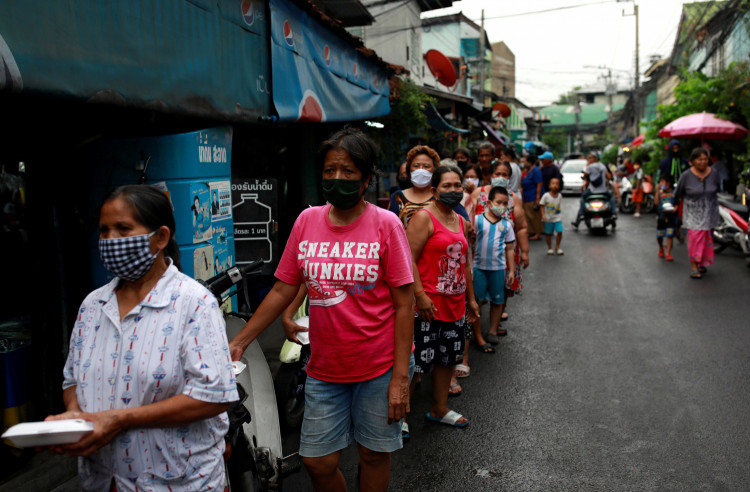The United Nations World Food Programme (WFP) again warns the unprecedented hunger crisis ignited by COVID-19 will hurl people -- including those in rich countries -- into poverty and starvation this year and in 2021. There is also the horrific spectre of famine in more than three dozen countries due to the pandemic.
WFP is sounding these dire forecasts even as it also warns strict social distancing and movement lockdown measures taken in response to COVID-19 might also kill more people than the number that will eventually die from the disease by the end of this year. The number of global COVID-19 deaths currently stands at 244,791 (67,448 in the United States), as of 06:12 GMT Sunday, according to data website Worldometer.WFP, which is the UN food-assistance organization, is the world's largest humanitarian organization working to save lives by delivering food assistance in emergencies.
"In a worst-case scenario, we could be looking at famine in about three dozen countries," said WFP director David Beasley. He also said the world might face multiple famines "of biblical proportions within a few short months."
As for social distancing measures, Beasley said there's "a real danger that more people could potentially die from the economic impact of COVID-19 than from the virus itself."
Beasley pointed out while the WFP deals with the COVID-19 pandemic, it also has to prepare itself to deal with the forthcoming hunger pandemic."
"We can expect more global deaths due to secondary impacts of COVID-19 than the virus itself -- the World Food Program currently estimates that 265 million in 55 countries will be on the brink of starvation by the end of the year," said Ian Bradbury, CEO of Canada-based humanitarian organization 1st NAEF.
A 5% reduction in global GDP because of the pandemic will hurl another 147 million people into extreme poverty, according to estimates by the International Food Policy Research Institute (IFPRI), an international agricultural research center that works to improve the understanding of national agricultural and food policies and promotes the adoption of innovations in agricultural technology.
More than 79 million of these people live in sub-Saharan Africa, said David Laborde Debucquet, IFPRI senior research fellow. Another 42 million are in South Asia.
"We are talking about (people) earning below $1.90 a day... where basically your life is in danger because, when you have this type of poverty and you cannot eat, you will die," said Debucquet. "This will affect the urban poor much more. In the last couple of decades, we have seen very fast urbanization in these two regions."






